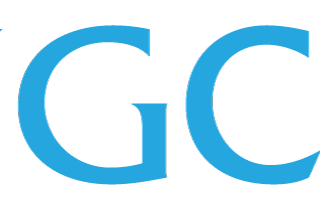Tagmarshal CEO Bodo Sieber Thinks New Pace-of-Play Policy Will Have Far-Reaching Ramifications
Kennesaw, Ga. – As one of the most visible, influential, and profitable entities in golf, the PGA Tour has an obligation to help grow the game. Unfortunately, the recently approved changes to its slow play policy have the potential to do exactly the opposite, choking off the flow of new players, reinforcing old stereotypes, and ignoring technology that can solve the pace problem for everyone, amateurs and pros alike.
Rather than encouraging its players to speed up, the Tour is making it easier for them to slow down. Fines, if they’re ever imposed, will be reduced from $50,000 to $10,000 for “bad times” and from $10,000 to $5,000 for “excessive shot times.” Not exactly a major financial hardship for athletes whose average earnings in 2024 were $1.978 million.
But even more wrong-headed is the proposal to reduce the number of players who keep their Tour card from 125 to 100 and shrink the size of tournament fields: Not only will the rich get richer, but the slow will also get slower.
Yes, the PGA Tour is owned by the players and has a responsibility to serve their interests. But it also has a responsibility to all golfers to help grow the game, which has been happening of late by making it more inclusive. These policies seem to contradict all notions of inclusivity.
It will be that much harder for up-and-coming players to graduate from a secondary tour to the PGA Tour, Monday qualify or gain a sponsor’s exemption as a way of challenging the status quo and bringing a different level of excitement as well as opportunity. What message does that send? And with smaller fields will come larger paychecks, making the smaller fines even more insignificant to their bank accounts.
By letting the “best in the world” play slower, the Tour is also encouraging new and younger golfers to play slower. I recently spoke with a course operator who runs a junior tournament, and he was appalled to see kids emulating the slow-play habits they see on TV, dragging out rounds and acting like prima donnas.
The worst message, however, is that not only is slow play allowable, but that it is unfixable. That’s simply wrong. Our company, Tagmarshal, is just one of many offering software and other technology means of tracking every player on a golf course, thereby providing hard data that has proven to be the most effective way of speeding up play by showing players how slow they are and their effect on others. This is not an opinion—it is backed by 10 billion data points collected from 75 million rounds of golf, tracked at over 600 facilities, including Pinehurst, Baltusrol, Erin Hills, Hazeltine, Bandon Dunes and Country Club at Castle Pines.
The PGA Tour has never been shy about adopting technology. It already compiles reams of data on players, shots, and scoring. It just chooses to use much of it to promulgate gambling.
Also, for the first time ever, the largest cohort of golfers is between 18 and 36 years old. They rely on the immediate gratification of Uber Eats, Amazon Prime, and video games; many of them came to golf through Topgolf or simulators. Used to shorter formats, faster results, and gamification, they’re not going to be happy waiting in the middle of the fairway for a group on the green taking 5 minutes to line up their 2-footers for triple bogey.
Having finally become sporty and cool—look at all the musicians, celebrities, and social-media influencers playing the game—golf cannot afford to backslide into stodgy and unhip.
Finally, slow play is bad for business, making it harder to get groups around a course in a reasonable amount of time. Courses that use Tagmarshal technology have seen significant gains in revenue (both tee-time and ancillary, like food, driving range, and pro-shop sales), number of golfers, and player satisfaction. Pace of play is one of the most important factors in enhancing a golfer’s experience, which leads to return business and word-of-mouth recommendations.
If anyone thinks established sports can’t be made to play faster, check out major league baseball. Adding a pitch clock has been very successful in shortening the length of games and raising fan interest and involvement. Games are more dynamic and more compelling for the audience, both in person and on television. (Isn’t Tour golf on TV slow enough already?) And MLB was able to do all this without removing two players from each team.
The PGA Tour should do what baseball did. It’ll be a home run.
To learn more about Tagmarshal, go to tagmarshal.com.
 About Tagmarshal
About Tagmarshal
Tagmarshal is the market leader in on-course optimization technology, providing courses with full, real-time operational oversight and reporting. The software and resulting data, gathered using golf cart GPS tracking, give golf operators the tools to manage operations effectively, resulting in enhanced player experiences, increased efficiency, cost savings, and additional revenue.
Tagmarshal’s technology has collected over 10 billion data points from over 75 million tracked rounds of golf and has relationships with more than 600 partners. Tagmarshal partners with several golf management groups, private, daily fee, public, and resort courses, including 40 of the Top 100 U.S. courses and many daily fee courses.
Media Contact:
Karen Moraghan, HUNTER Public Relations
908/963-6013 or kmoraghan@hunter-pr.com





